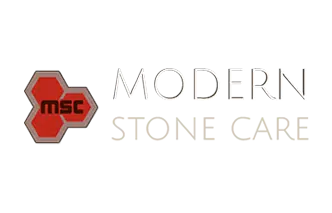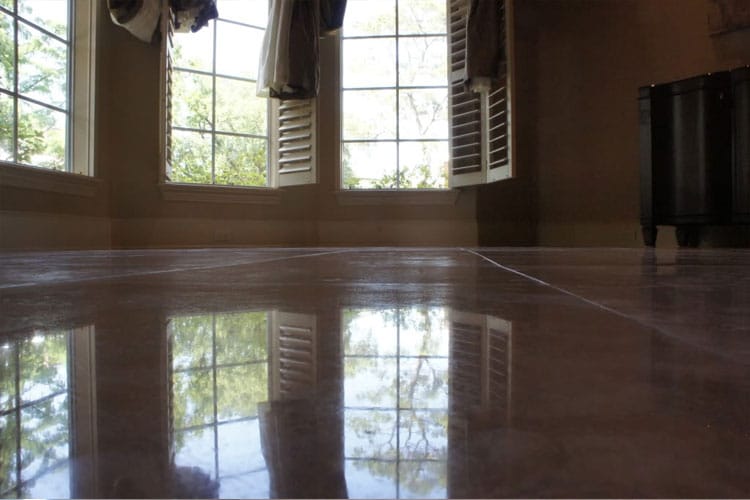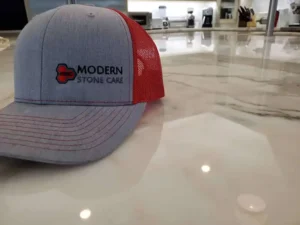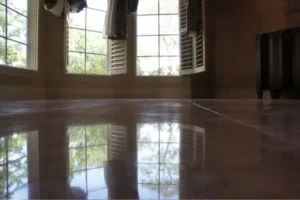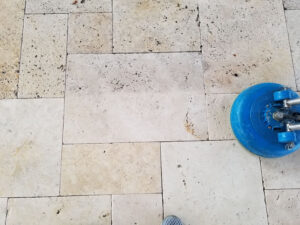What Is Travertine?
Travertine is a natural stone that is very similar to limestone. In fact, travertine actually is a specific type of limestone, although the names of the two stones should not be used interchangeably, as some differences exist. Travertine typically forms in hot springs. It forms by the precipitation of calcium carbonate.
What Is Travertine Used For?
- Countertops: The consistent color and long streaks that are typically present in travertine make the natural stone a beautiful choice for a countertop. However, you will need to make sure you exercise the proper caution and keep up on maintaining the surface.
- Backsplashes: A great way to match a travertine countertop is by installing a travertine backsplash. This backsplash will look incredible, as having travertine on the walls will truly highlight the natural beauty of the stone.
- Fireplace Surrounds: Another place travertine will look great is as a fireplace surround. The natural stone will be pleasing to the eye and will draw attention to the fireplace.
- Walkways: Travertine is a great stone for walkways, and it is often used for this purpose. In specific, honed travertine looks great on walkways.
- Interior Floors: Just as you can use the stone for walkways, you can also use travertine for interior floors. With a honed finish, the floor will look amazing.
- Patios: Travertine is commonly used in outdoor areas. If you are looking for a stone that looks nice on your patio, you should strongly consider going with travertine.
- Pool Decks: Travertine is slip resistant, which makes the stone an excellent choice for pool decks.
- Interior and Exterior Walls: If you want to bring a touch of natural beauty to your interior or exterior walls, using travertine can help you do just that.
- Driveways: Travertine pavers look incredible when used as a driveway surface. Considering that the driveway is an entrance to the home, using travertine can help you make a great impression.
- Bathtub Surrounds: Another use for travertine is as a bathtub surround. The natural stone will bring light and life to your bathroom.
- Shower Walls: You can also utilize travertine for shower walls. The natural stone looks beautiful when incorporated into the home as a shower wall.
Travertine Maintenance and Repair in Houston
The Spruce, outlines some of the routine needed for maintaining this natural stone below:
Travertine is paradoxically both complicated and simple. Like other natural stone, travertine has microscopic pores that can allow spilled liquids and staining agents to penetrate.1 This problem can be prevented by applying a penetrating sealer, followed by a barrier surface sealer. This dual treatment needs to be applied during installation, then periodically reapplied throughout the life of the floor. If you want to maintain a glossy surface, more regular resealing will be necessary. But if it is kept properly sealed, travertine is quite simple to clean, requiring only simple damp mopping with a mild soap solution.
Hard tile materials such as travertine are made to take a beating without showing significant damage from scratches, cracks, or chips. Over time, a weathering effect can occur, which is often prized for giving the floor a distinct character that evokes ancient architecture. This antique patina is one of the main allures of travertine.
With polished and honed materials, there is a greater risk of scratching, while natural-finish tiles are more resistant to damage and blemishes. Since travertine flooring is laid in tiles, individual pieces can be removed and replaced if they crack. This involves carefully breaking up and removing the damaged tile, scraping the subfloor, then installing a new tile with thin-set adhesive, and grouting the joints. If the surrounding floor has weathered, however, the patched area may not match exactly for some time.
Is Polished Travertine Weak?
Polished travertine does not weaken the stone itself, it does however make the surface of the stone more vulnerable towards scraping and etching. Many people desire this shiny finish because it elevates this rustic stone and allows for more sophisticated applications.
If you have noticed your travertine flooring or surfaces are lacking the marvelous shine they once had, schedule an appointment with the natural stone experts at Modern Stone today. Our team will assess the condition of your stone, clean, seal, and polish the surfaces, to give you the look you desire, while also protecting it against damage.
Most Common Travertine Finishes
- Polished: In this classification, the tiles are very glossy, since the stone has been polished for maximum smoothness and completely sealed. This is the best for resisting stains, but it is very slippery when wet.
- Honed: This class of travertine has been filled and lightly polished, but it still has a matte-like finish and is less slick and slippery than polished stone. This is the most popular stone for indoor floor use.
- Tumbled: Tumbled travertine has rounded corners and edges, with an aged, antique look. It provides good traction underfoot but will need to be sealed against stains. It has a beautiful antique look but isn’t very practical for heavy-use floors.
- Brushed: Brushed travertine is textured by treatment with wire brushes to give the stone a matte surface.
Natural Stone Polishing in Houston TX
At Modern Stone Care, our team of highly knowledgeable technicians specialize in the restoration, cleaning, polishing, and sealing of all-natural stone surfaces. This includes flooring, countertops, outdoor pool coping, and more. We work hard to ensure your natural stone maintains its beautiful and vibrant appearance for as long as possible. When it comes to the care of your delicate natural stone surfaces, leave it to the professionals at Modern Stone Care.
Modern Stone Care
970 Bunker Hill Rd
Houston, TX 77024
(832) 814–2041
Google Business Listing
